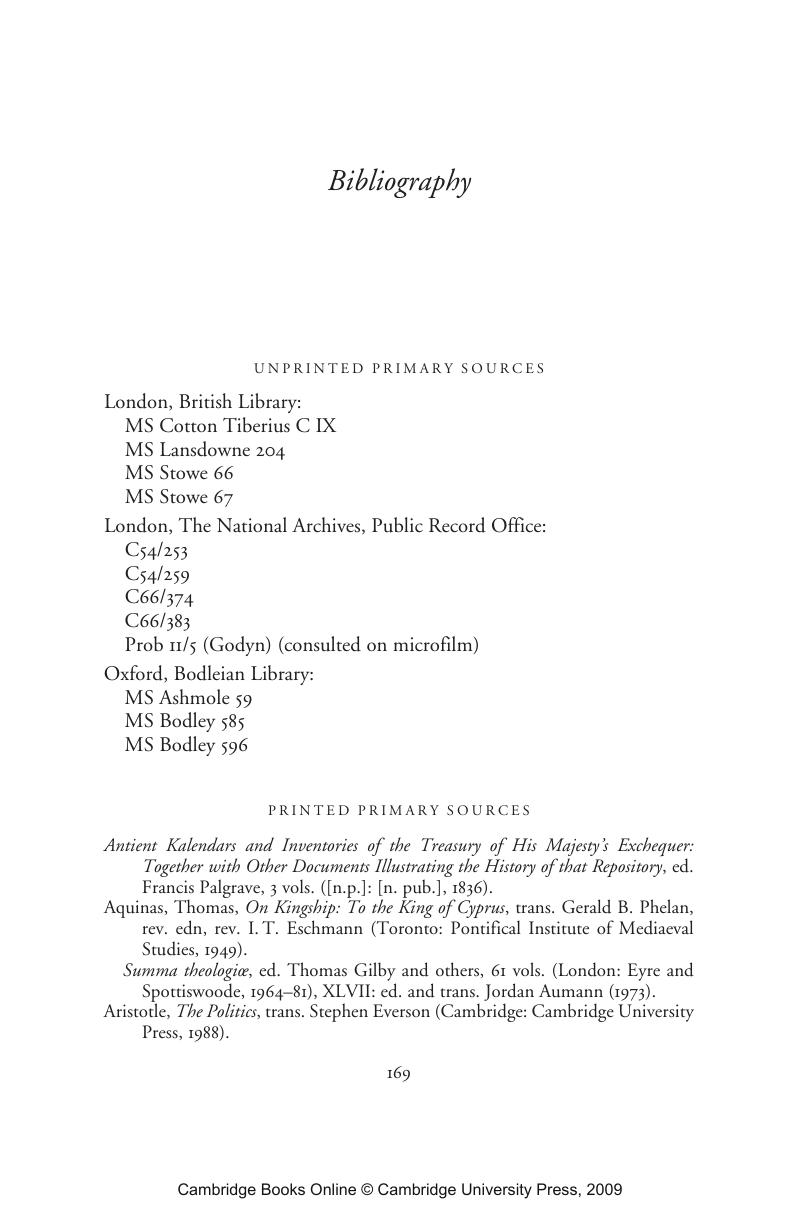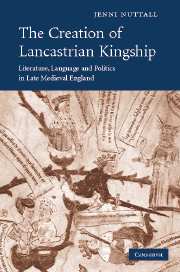Bibliography
Published online by Cambridge University Press: 27 October 2009
Summary

- Type
- Chapter
- Information
- The Creation of Lancastrian KingshipLiterature, Language and Politics in Late Medieval England, pp. 169 - 181Publisher: Cambridge University PressPrint publication year: 2007



